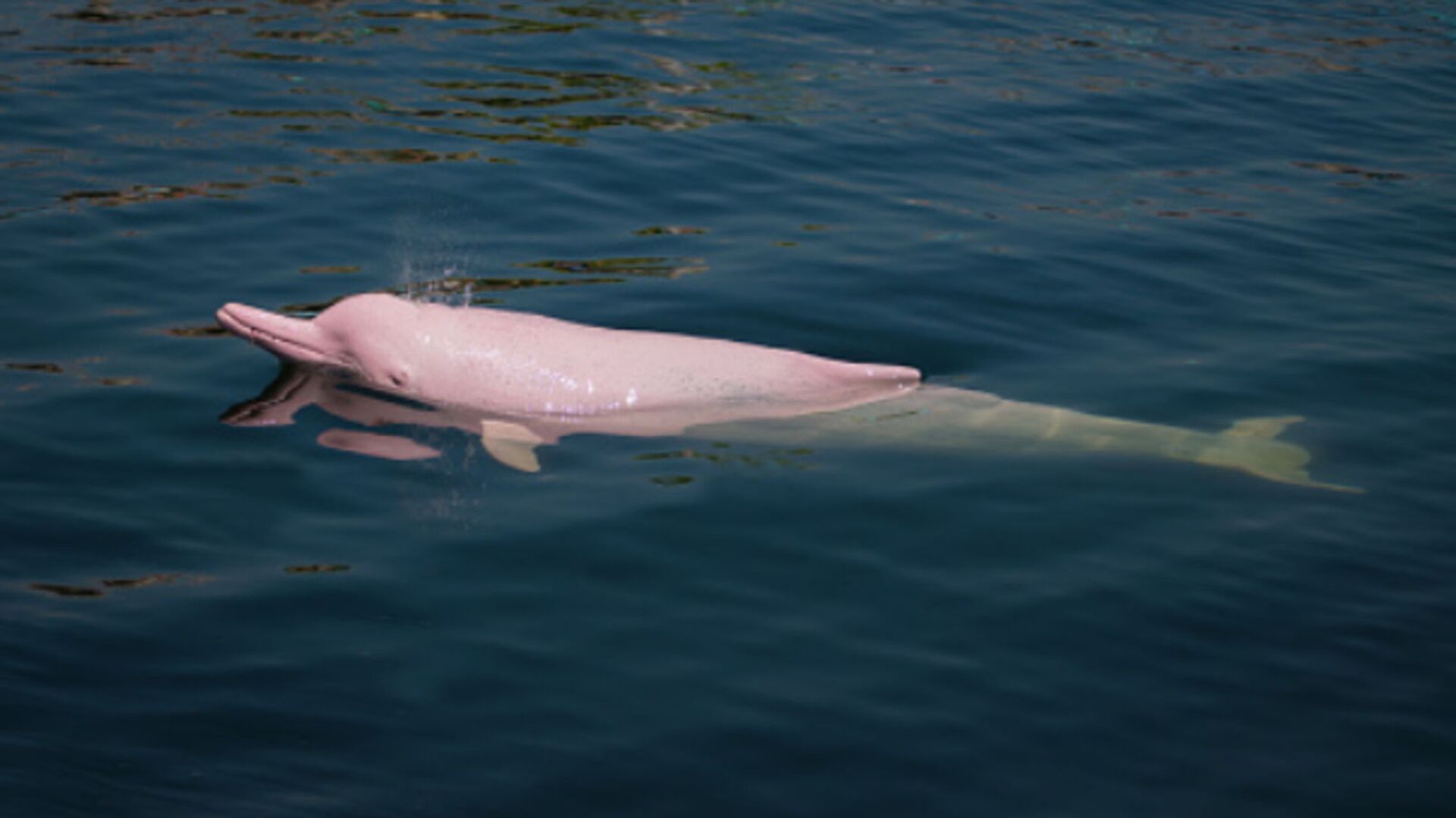Faroe Islands Set to Limit Controversial Dolphin Killings Due to Overfishing

© CCO
Subscribe
While whaling in the Faroe Islands is a tradition dating back to the Viking Age and the hunts are carried out on a non-commercial basis in an ordinary fashion as a community-binding activity, it has sparked vocal demands across the globe to end the practice, which is seen as barbaric and out of date.
Due to the fact that too many dolphins were caught in the Faroe Islands last year, the autonomous island nation, which is part of the Danish Realm, wants to limit the catch in the coming years.
According to the latest proposition by the Faroese government, only 500 white-sided dolphins will be caught per year in 2022 and 2023, with the perspective of raising the quota to 825 at some point in the future. In 2021, over 1,400 dolphins were caught and slaughtered in the Faroe Islands, sparking both ethic and environmental criticism.
The government said that last year's unusually high catch may be unsustainable and may hamstring future efforts.
The government said that last year's unusually high catch may be unsustainable and may hamstring future efforts.
Investigations into the Faroese dolphin hunt have been ongoing since February. They were launched after an international petition with 1.3 million signatures demanded a ban on dolphin hunting, Danish TV2 reported.
The government, for its part, emphasized that such hunting is an age-long tradition, as well as an important supplement to the Faroese livelihood. While admitting that last year's catch was inappropriate, it generally views catching dolphins as perfectly sustainable. At the same time, the Faroe Islands will evaluate the hunting procedures in order to ensure that the killing takes place as quickly and efficiently as possible.
The government, for its part, emphasized that such hunting is an age-long tradition, as well as an important supplement to the Faroese livelihood. While admitting that last year's catch was inappropriate, it generally views catching dolphins as perfectly sustainable. At the same time, the Faroe Islands will evaluate the hunting procedures in order to ensure that the killing takes place as quickly and efficiently as possible.
Furthermore, the government is awaiting the opinion of the North Atlantic Commission for Marine Mammals (Nammco). Upon receiving its evaluation in 2024, the quota will be reassessed.
Only dolphin hunting is currently under investigation. The hunting of humpback whales will continue as before.
The Faroe Islands (population 53,000) are a North Atlantic archipelago located about halfway between Norway, Iceland and Scotland.
Whaling on the Faroe Islands is a tradition dating back to the Viking Age. For hundreds of years, maritime mammals – primarily pilot whales, humpback whales, and dolphins – have been hunted for their meat and blubber. Each year, large herds are driven into shallow fjords and stabbed to death with traditional equipment such as a blowhole hook. Importantly, the hunts are carried out on a non-commercial basis and are seen as a community-building event, as the catch is ultimately distributed among the inhabitants.
Nevertheless, each year, the web runs amok with gory footage and vocal demands to stop the practice, which is largely seen elsewhere as barbaric and out of date. The Faroese government, however, insists that the hunts are well-organized and fully regulated.
